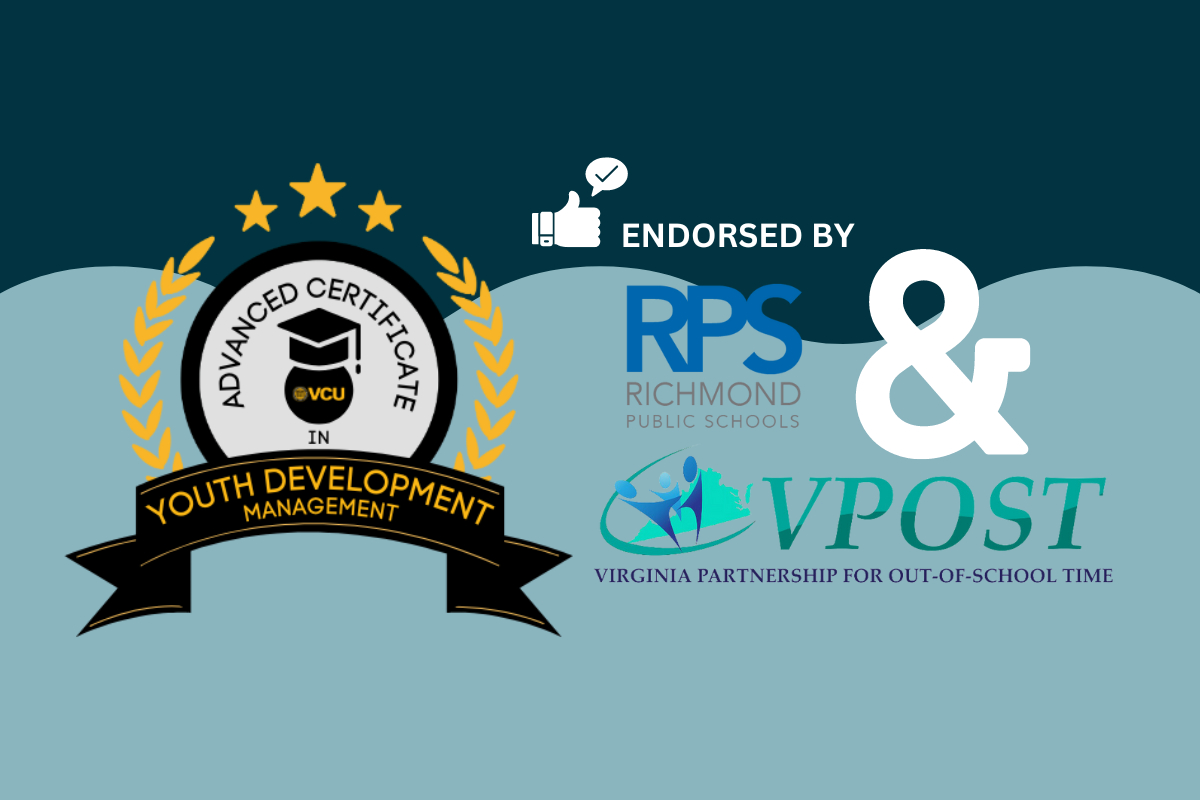
The VCU Advanced Certificate in Youth Development Management provides essential training in workforce development and positive youth engagement. Designed for professionals across a range of sectors—including early childhood education, out-of-school time (OST) programs, school and community-based initiatives, healthcare settings, and non-traditional adult education—this certificate equips participants with the skills needed to thrive as caregivers, mentors, educators, healthcare providers, youth program leaders, and managers. Rooted in the unique needs of youth in the Richmond region, the program promotes best practices for supporting young people and strengthening community engagement across Virginia.
The VCU Advanced Certificate in Youth Development Management is an ideal program for individuals committed to making a significant impact in the field of youth development and health. Through its focused curriculum and experiential learning opportunities, students will emerge as leaders equipped to face the challenges and opportunities in the evolving landscape of youth lives.
This certificate is a non-credit credential managed by the VCU Mary and Frances Youth Center.
Congrats to the 2024-25 Cohort Graduates!
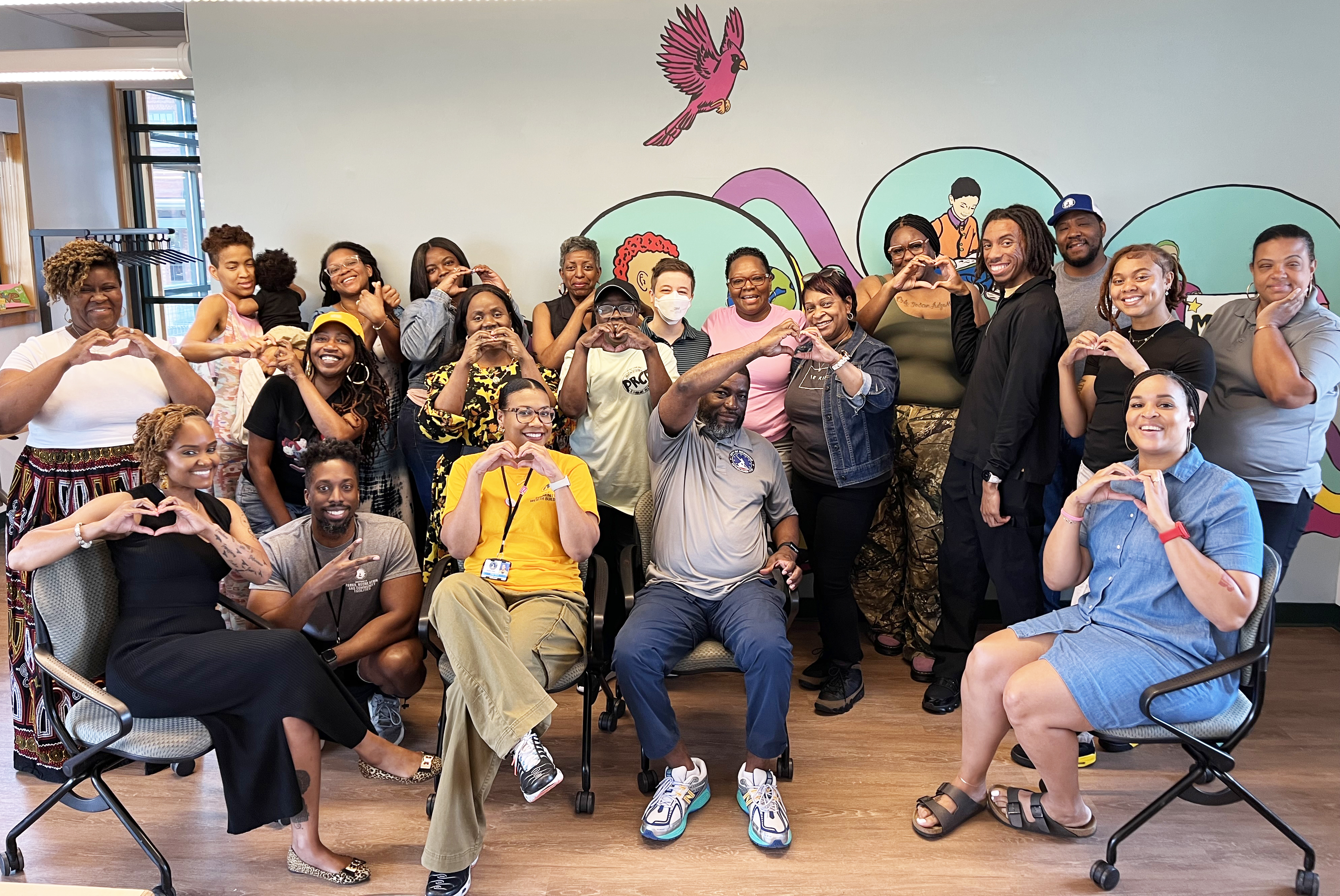
The VCU Advanced Certificate in Youth Development Management spans three semesters and combines coursework with community program site visits. Cohort members examine topics such as positive youth development, program and curriculum planning, and evaluation and assessment systems for youth programs. Through lectures and practical experiences, Cohort members explore the local and regional factors influencing young people's academic, physical, and social development. The curriculum specifically addresses the unique needs of Richmond's youth population, aiming to establish best practices for engaging with the local and regional communities. However, The VCU Advanced Certificate in Youth Development Management also offers exemplary practices applicable to cities and regions throughout Virginia. Examples of best practices highlighted in the program include:
- Programming tailored to meet the needs of diverse youth populations in the Richmond region and throughout Virginia.
- Collaborative community partnerships that enhance access to resources and support networks for young people.
- Holistic approaches to youth development that consider social, emotional, and academic needs.
- Leadership strategies that promote program success and empower young people.
- Innovative methods for empowering youth in decision-making processes and civic participation throughout the Commonwealth.
These examples illustrate how the certificate program not only addresses the specific context of Richmond but also offers insights and strategies applicable to youth development efforts statewide.
Regional Site Visits: Cohort members participate in site visits with youth and youth organizations as stipulated by MFYC staff.
Upon completion of the program, certificate holders are equipped with the skills to effectively connect with youth and collaborate with program partners. Additionally, they gain access to career opportunities within the region and across Virginia. The VCU Advanced Certificate program aims to enhance the quality of youth programs by providing focused coursework delivered by community-based facilitators and content experts, preparing future youth professionals to excel as leaders, educators, mentors, and caregivers.
Interested in joining the Richmond cohort or bringing a cohort to your area?
For inquiries, please visit the VCU Mary and Frances Youth Center or contact Dr. Vaughn Whitney Garland.
Join The RichmondYDN Newsletter.
Community Engagement at the Heart of Youth Development
The VCU Advanced Certificate in Youth Development Management uses a community-engaged approach to inform all aspects of youth development education and training. Developed through community input and shaped by a community-centered approach, this non-credit certificate prepares youth program staff and health professionals to listen deeply, build authentic relationships, and engage in ways that honor and respond to the lived experiences of youth and families. It equips participants with the skills and reflective practices needed to connect with humility, promote healing with intention, and cultivate meaningful, sustained partnerships.
This certificate program took shape following a direct request from the Boys & Girls Club of Metro Richmond in November 2023. From late fall 2023 into the spring of 2024, VCU Mary and Frances Youth Center and the Division of Community Engagement embraced a community-centered approach by engaging the expertise of community partners, seasoned program staff, and regional youth development leaders to co-design the eighty-hour, three-semester curriculum. This collaborative process ensured that the program would reflect the real needs, values, and experiences of those working directly with young people. During that same period, the Mary and Frances Youth Center formed a partnership with VCU Continuing and Professional Education (CPE) to develop the pathway for registration and credentialing. Partnering with CPE was a pivotal step in launching this community-focused, accessible VCU program dedicated to serving the Richmond region.
Why It Matters
This certificate is transformational—inviting a shift in mindset and a reimagining of what it means to serve, lead, and collaborate with communities. Participants don’t leave with just a certificate; they leave with a renewed sense of purpose and the capacity to help reweave the fabric of community connection, belonging, and possibility. The VCU Advanced Certificate in Youth Development Management represents a strong commitment to the future of Richmond and communities across Virginia—equipping youth program and health service providers with the skills to thrive as trusted, supportive adults in both life and career.
What Makes This Approach Different?
The VCU Advanced Certificate in Youth Development Management is guided by these key principles of community-engaged practice:
- Collaborative: Decisions are made with communities—not for them.
- Reciprocal: Engagement is mutual—everyone contributes, everyone benefits.
- Asset-Based: Amplify what's working and already exists in the community—not just what's missing.
- Sustainable: Support the long-term success of youth workers by opening career pathways and bridging siloed systems—laying the foundation for enduring, systemic change.
Locally Grounded: Every session is facilitated by local experts and practitioners who respond to and understand the unique realities and resources of the communities where youth live.
 Photo by Dante Washington
Photo by Dante Washington
A Regional Need for Workforce Development
By equipping individuals with essential skills and knowledge, this certificate program endeavors to cultivate a skilled workforce capable of meeting the needs of youth in Richmond and Virginia. Ultimately, the impact of this initiative extends beyond individual career advancement, fostering robust workforce development and strengthening connections between trained certificate holders and youth engagement, thereby nurturing enduring careers in this vital sector.
Three semesters of coursework designed for professionals working with youth, including:
School Educators, Administrators, Volunteers, and Staff
-
- Teachers (elementary, middle, and high school)
- Principals and Assistant Principals
- School Counselors
- School Nurses
- Administrative Staff
- Classroom Aides
- School Librarians
- School Volunteers (e.g., PTA members, community volunteers)
Early Education and Out-of-School-Time (OST) Programs
-
- Preschool Teachers and Staff
- Head Start Program Workers
- After-School Program Coordinators
- After-School Program Tutors and Mentors
- Summer Camp Counselors
- OST Program Volunteers
Non-Profit Youth Organizations and Community Groups/Centers
-
- Youth Mentoring Program Coordinators and Mentors
- Full and Part-time Program Staff
- Program Coordinators and Managers
- Community Center Directors
- Non-Profit Program Volunteers
Healthcare, Community Service Boards, Youth and Family Counseling Services, and Youth Detention Centers
-
- Pediatricians and Family Doctors
- School Nurses
- Mental Health Counselors
- Social Workers
- Juvenile Probation Officers
- Detention Center Staff
- Family Therapists
- Substance Abuse Counselors
- Community Health Workers
Current Undergrad and Graduate Students
-
- VCU and VCU Health students, faculty and staff
VCU Priority Partner Communities
-
- Residents and parents
- Community Leaders
- Local Business Owners
- Neighborhood Association Members
- Community Organization Members and Staff
Faith-Based Groups and Programs
-
- Youth Group Leaders
- Sunday School Teachers
- Church Volunteers
- Faith-Based Non-Profit Staff
- Clergy Members
- Program Managers
- Religious Education Coordinators
Summer and Extended-Day Youth Camps
-
- Camp Directors
- Camp Counselors
- Camp Activity Coordinators
- Camp Volunteers
- Sports Camp Coaches
- Art and Music Camp Instructors
Anyone Who Works With or Engages Youth
-
- Sports Coaches
- Dance Instructors
- Art and Music Teachers
- Scout Leaders
- Youth Program Coordinators
- Life Skills Coaches
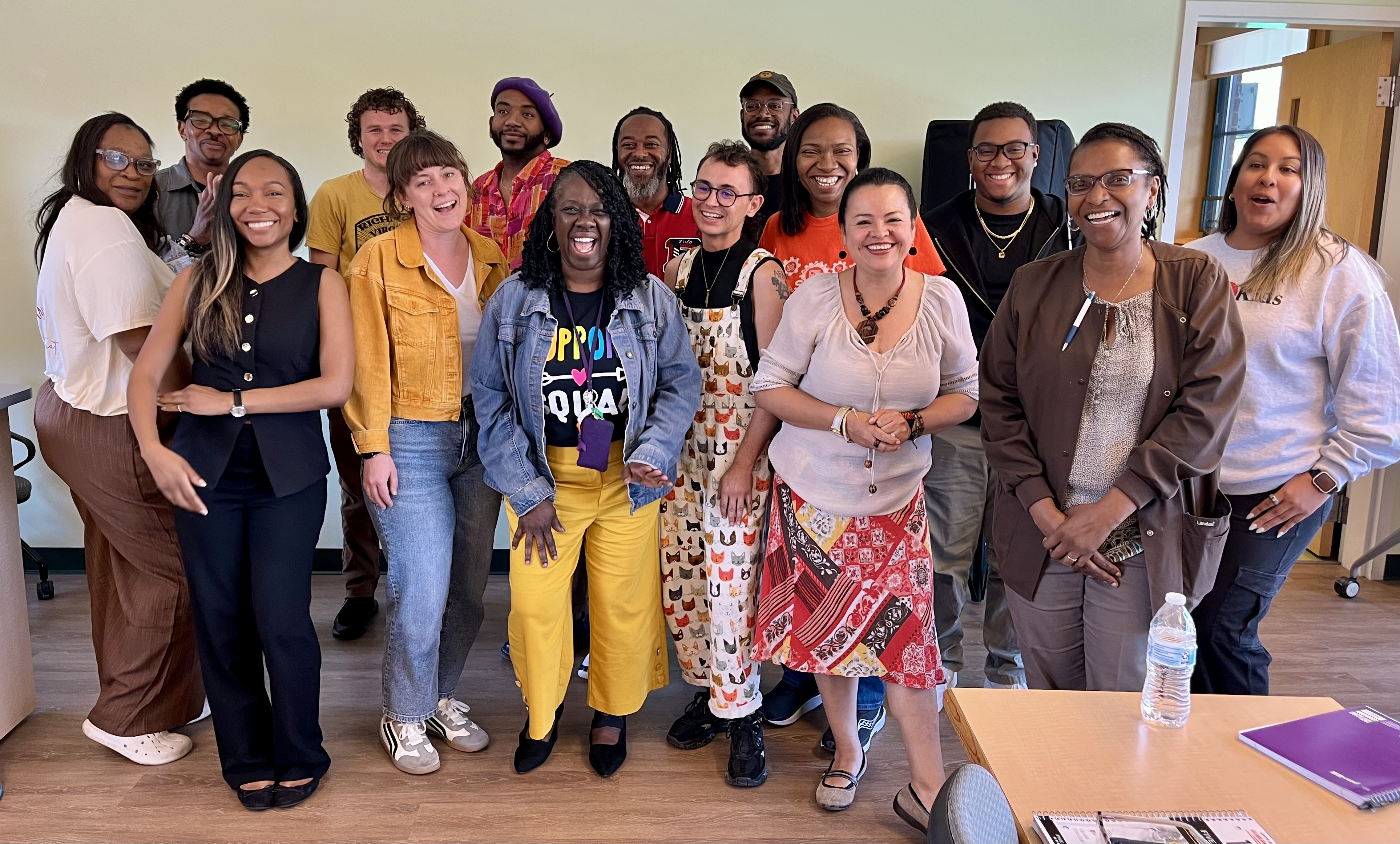
Introducing the 2025-26 Richmond Cohort!
|
|
Itosedehi AireweleGoes by Edehi “I want to be seen as passionate about helping youth discover their passion and talents and empowering them to succeed.” |
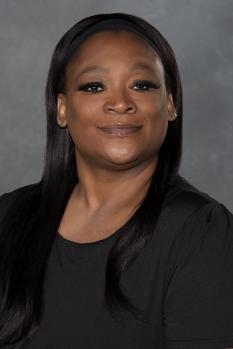 |
Ivy Bell"I want to be seen as a great listener, positive person and someone always willing to help." |
 |
Lashari CelistanGoes by Shari Fairfax County Neighborhood and Community Services "I want to be seen as someone who uplifts and empowers young people to find their voice and potential." |
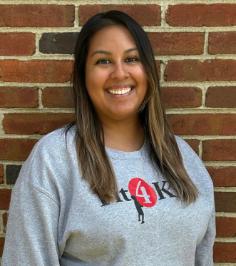 |
Samantha ClavelGoes by Sam “I want to be seen as someone who creates lasting impact by equipping youth with the confidence and tools they need to thrive.” |
 |
Hattie Crawley“I want to be seen as a person who empowers others by encouraging them to grow, achieve and believe the best can happen to them all while being guided by faith and purpose.” |
 |
Justice DwightArtist, Self employed “I want to be seen as a radiant, intentional, joy-filled creator who transforms personal and community stories into sacred, lasting art.” |
 |
Taimir Gore“I want to be seen as honestly as I’m able to present myself.”
|
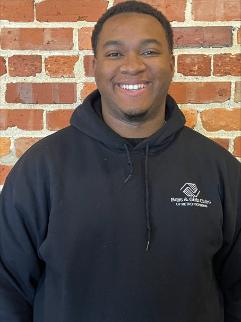 |
Jaylin Graham |
 |
Montana HairstonGoes by Leo “I want to be seen as someone who helps people turn pain into purpose and equips people to transform fear and uncertainty into clarity, confidence, and power—always with authenticity and No Bravado.” |
 |
Stephanie Jefferson“I want to be seen as open to learn new skills and a mentor to others in my community.” |
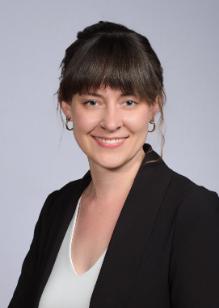 |
Elizabeth Kilpatrick“I want to be seen as a confident servant leader who is trusted by the communities I am apart of.”
|
 |
Ryan Ott“I want to be seen as a naturalist, educator, and Richmond native that loves building connections between people and nature.” |
 |
Lorena Suarez-Cabrera"I want to be seen as an analytical and constant learner, with two personalities. In Spanish, my first language, I am outgoing, and in English, I am quieter."
|
 |
Emerson TedderInstitute for Contemporary Art at VCU “I'd like to be seen the way my niblings see me- caring, capable, a little goofy, kind.” |
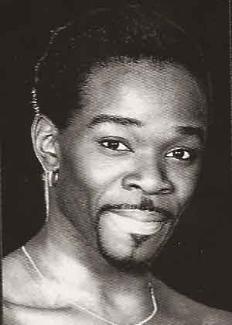 |
Herb WilliamsFairfax County Neighborhood and Community Services "I want to be seen as a bold, authentic visionary who empowers others, connects communities, and leads with resilience and purpose."
|
LaDesha Batten, Anna Julia Cooper School.
Dr. Leigh Ann Breckerridge, VCU Department of Family and Community Health Nursing.
Verenda Cobbs, VCU Office of the President.
Adrienne Cole-Johnson, Henrico Public Schools.
Dr. Michele Cosby, VCU Treatment Center for Youth.
Yolanda Hall, Unbreakable Minds.
Dr. Susan Harding, VCU School of Education.
Trey Hartt, The Hive
Damon Jiggetts. Henrico Education Foundation.
Kaitlyn Kammerman, Autism Society of Central Virginia.
Dr. Oscar Keyes, VCU Libraries, The Workshop.
Jae Lange, Marsha and Marians Neighbors.
Leanne Lytle, Communities In Schools of Virginia.
Anne Massey, VCU History and Health Program.
Octavia Marsh, Henrico Prevention Services.
Sharron McDaniel, VCU Office of Alumni Relations.
Chimere Miles, Peter Paul RVA.
Tasha Moore, We Unite
Dr. Misti Mueller, VCU Mary and Frances Youth Center.
Colonel Pratt, Richmond Peace Education Center.
Charlie Schmidt, Richmond Public Library, Law Library.
Tamice Spencer-Helms, Mentor Virginia.
Santa Sorenson, Healing In Community.
Logan Vetrovec, VCU History and Health Program.
Dr. Alex Wagaman VCU School of Social Work.
Ashley Williams, BareSoulWellness.
Kim Young, Dope Black Social Worker.
Education Manager,
Dr. Vaughn Garland, VCU Mary and Frances Youth Center / RichmondYDN.
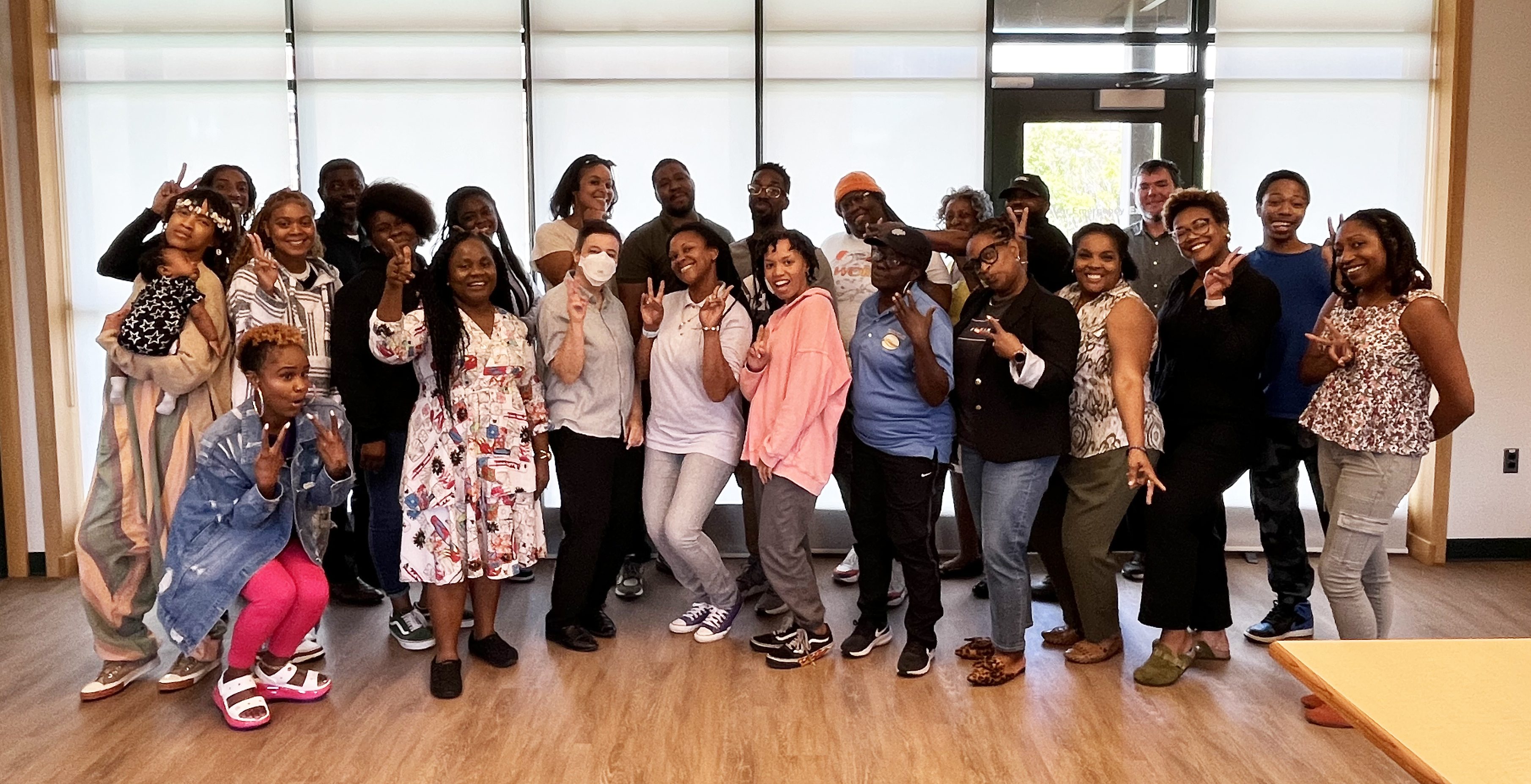
Introducing the 2024-25 Cohort!
 |
Johnnette AllenGoes by Jay "I would like to be seen by others how others view me. Everyone see things differently" |
 |
0luwatosin AliyuGoes by Grace Hubert H. Humphrey Fellowship Program "To be seen as a youth influencer" |
 |
Kai BanksStorefront for Community Design “I want to be seen as a passionate advocate and community leader who is deeply committed to creating equitable access to resources, fostering meaningful connections, and empowering others through innovative and inclusive approaches” |
 |
Kamala BhagatArtist and Cultivator “I want to be seen as a vessel of evolution and imagination who narrates a journey of connectedness and wholeness, grounding my creativity in nature and honoring my origins and ancestors through circular ideation that fosters balance and inspires others to inhale inspiration and exhale joy within their context.” |
 |
Doug BoldenCity of Richmond Parks and Recreation “Quiet mostly but a willing participant” |
 |
Brittany BooneCity of Richmond Parks and Recreation “I would like to be seen as positive and helpful person!” |
 |
Chenice Brown“I want to be seen as a person who is showing up with the love of Christ. I want people to leave different when they encounter me because I was able to sow into them in a tangible way. I want people to see me as the “Hope Dealer” helping to create change.” |
 |
Imiir CarringtonGoes by Tink Boys and Girls Club of Metro Richmond "I would like to be seen by my peers as someone eager to learn from others and committed to my work." |
 |
Christina ClarkSTEM Education and Innovation Center "In a youth development certificate program, I want to be seen as a passionate, knowledgeable, and effective professional." |
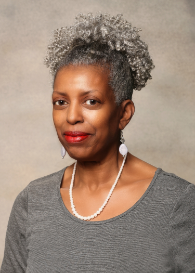 |
Justine ColemanVCU Grace E. Harris Leadership Institute "I'm a self-motivated individual who enjoys challenging tasks, looking for ways to grow and meet others where they are." |
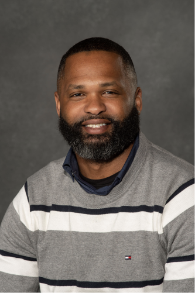 |
Daninelle DerricottGoes by Coach D. VCU Mary and Frances Youth Center Dani is “dedicated to empowering youth through education, athletics, and community engagement, leveraging his sports background to inspire and mentor young people.” |
 |
Cindy Doyle Richardson-Keys"I am gracious, loved and filled with optimism." |
 |
Angelica HeathCity of Richmond Office of Community Wealth Building, Youth Engagement Services "I wish to be seen as a change maker and advocate, living life optimistically and leading with enthusiasm, love, courage, and passion to make a lasting impact in the lives of others." |
 |
Earl HughesCity of Richmond Parks and Recreation I want to be seen as "Different." |
 |
LaToya MayoGoes by Coach Toya City of Richmond Parks and Recreation “I am a Recreation Instructor, Cheer Director, Youth Mentor Coach and Team Lead for Out of School Time. I enjoy what I do and love working with our youth.” |
 |
Ashley Diaz Mejias"I hope to be seen as a community member, parent and pastor committed to accompanying those harmed by incarceration, especially children and their support networks, in practical ways and as a believer in hope who cooperates with, supports and contributes to the community's movement toward freedom" |
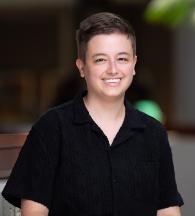 |
Sam Mickey"I want to be seen as a genuine person who's trying their best to grow and support others in their growth." |
 |
Tasha Moore"I want to be known as a disruptive leader. Someone willing to disrupt the norm in order to create more sustainable and equitable impact for communities - 'My time on earth is limited. I will not only age with grace, but also with mischief, audacity, and a good story to tell!" |
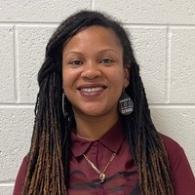 |
Alison OwensGoes by Alice "I would like to be seen as open-minded, positive and helpful." |
 |
Kiana PughGoes by Kee “I’m excited to start my first journey to be become a family social worker” |
 |
Melanie RamosCity of Richmond Parks and Recreation "I want be seen as kind, hard-working and purposeful." |
 |
Devyn Reid"I want to be seen as somebody who is worth everything I deserve." |
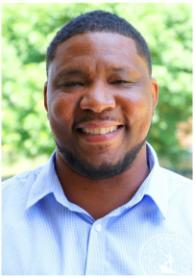 |
Talmadge RichardsonCity of Richmond Parks and Recreation “I would like to be described by others as a kind knowledgeable young man.” |
 |
Justin RobinsonSalvation Army Boys and Girls Club, Central Virginia "I’d like to be seen as the person God created me as." |
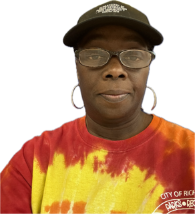 |
Sherlitha RobinsonGoes by Litha City of Richmond Parks and Recreation "I would like to be seen as someone who is a sponge when it comes to learning new things." |
 |
Alyaa StephenGoes By Aly “An optimistic, hardworking and resilient young woman who strives to uplift herself and her community.” |
 |
Anais Wyche“I want to seen for my skill and not my skin. I want my heart to shine bright and my passion to enter rooms before my body ever makes it in.” |
The Advanced Certificate in Youth Development Management equals eighty hours of work and is offered over three semesters; Fall, Spring and Summer. Participants are expected to commit two hours per week. Each weekly session will require a submitted 300-word reflection of facilitation topics, discussion and site experiences.
This certificate is a non-credit credential managed by the VCU Mary and Frances Youth Center.
- 24 hours coursework
- 6 hours community site visits
- 2 hours orientation
This foundational course offers a thorough exploration of the core principles, tools, and practices essential for supporting the positive growth and development of young individuals. Over the course of the semester, cohort members will examine key aspects of youth development, gaining insight into both theoretical frameworks and practical applications. By the end of the course, participants will be well-prepared to contribute to the overall well-being of young people.
The course begins with an introduction to the tools of positive youth development, including the use of the StrengthsFinder Assessment Tool to help youth identify and build upon their personal strengths. Participants will also study the impact of Adverse Childhood Experiences (ACEs) on youth development and learn strategies for responding to trauma and adversity.
Additional topics include mental health first aid practices, characteristics of effective youth development professionals, and techniques for creating safe environments that support learning and growth. The course also covers Social-Emotional Learning (SEL) and mindfulness approaches to help foster resilience and self-regulation in youth.
Cohort members will engage in applied learning through practicum experiences and site visits, allowing them to connect course concepts to real-world youth programs and services. This hands-on component reinforces course content and promotes practical skill development.
By the end of the semester, participants will have reflected on their growth and synthesized their learning, emerging with a strong foundation in youth development practices and the tools necessary to support the success and well-being of the young people they serve.
NOTE: This certificate is a non-credit credential managed by the VCU Mary and Frances Youth Center. Completion of this section of the certificate will include a digital badge.
- 24 hours coursework
- 2+ hours attending a professional development program
- 4 hours community Site visits
This course provides an in-depth exploration of youth restorative programs and practices, focusing on principles of restorative justice, healing-centered approach, and community engagement. Through theoretical study and practical exercises, cohort members will learn conflict resolution strategies, engage in community-based learning, and critically reflect on the role of restorative practices in young lives. The course aims to empower educators and youth program staff to facilitate healing and positive outcomes for youth in various community settings across Richmond and Virginia.
NOTE: This certificate is a non-credit credential managed by the VCU Mary and Frances Youth Center. Completion of this section of the certificate will include a digital badge.
- 15 hours coursework
- 2 hours Ending Celebration
This course is designed to strengthen the coping and leadership skills of youth program professionals. Covering key topics such as curriculum development, project management, and professional boundaries, it offers practical tools to help create well-structured, sustainable program environments that support staff longevity and effectiveness.
Cohort members will participate in activities that enhance planning, organization, and reflective practices to improve overall program management. The course emphasizes strategies for maintaining strong leadership and building stable, productive youth programs that contribute positively to their communities.
NOTE: This certificate is a non-credit credential managed by the VCU Mary and Frances Youth Center. Completion of this section of the certificate will include a digital badge.
Certificate Requirements and Expectations
The Advanced Certificate in Youth Development Management is a noncredit credential managed by the VCU Mary and Frances Youth Center and is NOT designed (i) for credit transfer, (ii) to apply credit towards another credential, or (ii) to meet licensure requirements.
Attendance and Participation
To successfully complete this certificate, cohort members are expected to actively participate in and attend at least two-thirds (2/3) of the weekly sessions. Active participation includes engaging in discussions, completing weekly reflections, and contributing to group activities.
Exceptions to Attendance
We understand that unforeseen circumstances may arise. Therefore, exceptions to the attendance requirement will be granted when the following conditions are met:
- Cohort members must review all missed facilitation materials, including readings and any supplementary resources provided.
- Cohort members may watch a recorded version of the missed session as offered by MFYC staff.
- Cohort members must complete and submit a reflection on the weekly topic/s missed. These reflections should demonstrate a thorough understanding of the content covered by facilitation materials, resources and recorded video as well as any insights gained.
Assignments and Assessments
- Weekly Reflections: In addition to attendance, weekly reflections are a critical component of cohort growth. Reflections should be submitted on time, regardless of attendance status. A link to submit weekly reflections will be provided by MFYC staff.
- Assessments: Cohort members will be asked to evaluate the certificate program and provide feedback to MFYC staff throughout the year. All input is encouraged as we strive to create the best experience for everyone.
Communication
- Notification of Absences: If you anticipate an absence, please notify MFYC staff in advance whenever possible. Provide any necessary documentation to support your request for an exception.
- Office Hours: Take advantage of office hours for additional support and clarification on weekly materials. Regular communication with MFYC staff is encouraged.
Cancellation, Code of Conduct, and Removal Policy for Certificate Program and Courses
This policy outlines the terms and conditions regarding the cancellation and removal of a cohort member from our certificate program and individual courses. It applies to all and must be adhered to for the smooth functioning of the program.
Cancellation Policy
- Full Refund: Cohort members may cancel their enrollment in the certificate program up to fourteen days before the start date of the program and will be eligible for a full refund during this time period.
- No Refund: Cancellations made less than fourteen days before the start date will not be eligible for any refund.
Exceptional Circumstances
- In cases of emergency or extenuating circumstances (e.g., medical emergencies, family emergencies), participants may be eligible for a partial refund regardless of the timing. Documentation may be required.
Code of Conduct
We are committed to fostering a respectful and inclusive learning environment for all. The following guidelines are set to ensure a positive and supportive experience:
- Constructive Engagement: Engage constructively with peers, facilitators and MFYC staff, contributing positively to discussions and activities.
- Supportive Environment: Recognize that some subject content may be challenging. Treat the communal space as a place for healing, support, and mutual understanding.
- Zero Tolerance for Disruption: Any disruptive behavior, harassment, or actions that negatively impact other cohort members, staff, or facilitators will not be tolerated.
- Adherence to Policies: Compliance with all program policies and this Code of Conduct is mandatory. Failure to adhere may result in removal from the program and disqualification from receiving the certificate.
Process of Removal
- Warning: In most cases, the cohort member in question will receive a written and/or verbal warning outlining the misconduct and the consequences of continued non-compliance.
- Review: If the behavior continues or is severe, a review will be conducted by MFYC staff. The participant may be asked to provide an explanation or evidence regarding the incident.
- Decision: Based on the review, a decision will be made regarding the removal of the cohort member. The cohort member will be notified in writing of the decision and any relevant details.
Refund Policy for Removal
- Participants removed from a program or course for misconduct or non-compliance are not eligible for a refund.
Appeals
- Participants have the right to appeal a removal decision. Appeals must be submitted in writing within seven days of the removal notification and should include any supporting documentation or evidence. The appeal will be reviewed by a committee, and a final decision will be communicated within fourteen days.
This policy ensures fairness and clarity in managing the requirements and expectations for the 2024-2025 VCU Advanced Certificate in Youth Development Management. By adhering to these guidelines, this year’s cohort will be poised to maximize their learning experience and successfully complete the program. We are committed to supporting a rewarding experience and journey, which highlights and celebrates the strengths of all cohort members.
Before enrolling in this certificate program cohort members are encouraged to review these terms carefully and contact Dr. Vaughn Garland, garlandvw@vcu.edu, with any questions or concerns.
Fee for non-credit enrollment
- Full Enrollment in the certificate program: $1,499.00. (Includes all three sections of Fall, Spring and Summer).
- Enroll in the Certificate Program, but pay for each section as you go: $599 per section. Total investment $1,797.00
- Full Certificate Enrollment: Savings of $298 when paying for full certificate program.
The Richmond region faces a critical workforce development challenge, particularly in fields related to youth programs, education, administration, and health services. Professionals in these sectors often confront high levels of job stress, moral injury and burnout. For youth development practitioners, the challenges are often compounded by the need to support traumatized students, families, and communities while addressing their own lived experiences.
For over fifteen years, regional OST and youth program leaders have called for the “standardization of the youth development field,” which could ensure that program staff and service providers possess the skills necessary for sustainable, impactful careers working with youth. A 2021 blueprint released by the Richmond Out-of-School Time Alliance highlighted the benefits of this standardization such as ensuring consistency and quality in youth development programs. This longstanding need catalyzed the creation of the Advanced Certificate in Youth Development at Virginia Commonwealth University (VCU).
The idea for the certificate program took shape following a direct request from Sean Miller and Jeanine Turner with the Boys and Girls Club of Metro Richmond to Dr. Vaughn Garland and Dr. Misti Mueller in November 2023. The Mary and Frances Youth Center and the VCU Division Of Community Engagement swiftly responded. Throughout the remainder of the fall of 2023 and into the spring of 2024 Dr. Garland solicited the expertise of community partners, seasoned program staff, and regional experts in youth development to design the eighty-hour, three semester curriculum. During that same time, Dr Garland formed a partnership with the VCU Office of Continuing and Professional Education (OCPE) to develop the pathway for registration and credentialing of the certificate. Partnering with OCPE was a pivotal step in launching this first-of-its-kind VCU program directed to the Richmond region. Additionally, the Division of Community Engagement offered two full scholarships and three partial scholarships to assist cohort members enroll this year.
The Advanced Certificate in Youth Development welcomed its inaugural cohort in August, 2024. The program’s goals extend beyond individual professional growth, aiming to bolster workforce development across the Richmond area. By equipping participants to better meet the needs of local youth programs, the certificate strengthens connections between trained professionals and the community while fostering meaningful, long-term careers in this vital field. This initiative exemplifies how collaborative efforts can address pressing workforce gaps, ensuring that Richmond’s youth development professionals are prepared to create positive, lasting impacts on the communities they serve. Currently Richmond Public Schools and the Virginia Partnership For Out Of School Time have endorsed the certificate, which will give further opportunities for cohort career pathways.
Looking ahead, and at the request of leaders of youth serving organizations, a second certificate focused on program management and leadership is underway.

